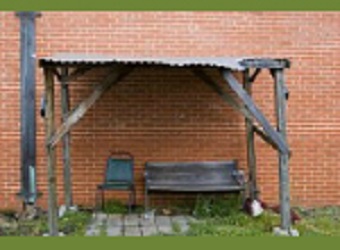Take a Long Look at Community Poverty
Last Updated: May 23, 2024
Community poverty makes it hard to maintain an attractive and functional neighborhood and community, complete with grocery stores, pharmacies, sandwich shops, and other basic retail. On this page we will itemize our ideas on what to do about it.
It seems to be out of fashion to talk about poverty or low-income neighborhoods, we desperately need this conversation. We need to stop ignoring the single determining factor in some neighborhoods from the most rural to the most urban, and everything in between. I have been astounded to notice that many neighborhood leaders in high-poverty areas are reluctant to discuss this most basic of issues and determining factors with me.
Suburbanization of poverty should replace our outmoded stereotypes of all poor people living in urban areas. The largest cities and the most rural areas continue to have substantial populations of people who are not able to meet basic needs, but the suburbs could and should become less complacent about what is happening in their midst.
So it is time that we start being serious about eliminating both situational poverty of individuals and the systems in our cities and towns that lead to entire neighborhoods composed mostly of economically disadvantaged people. This phenomenon results in a lack of role models in how to build enough wealth to have economic security. Of course, it also causes the loss of businesses that provide essential goods and services. This downward spiral then contributes to decreases in housing value, which then causes a rational homeowner to minimize reinvestment in his or her property. (For more on this angle, see our page on housing decline.)
In a metropolitan area, the wealthier suburbs often contribute
greatly to the community poverty mentality and reality in other suburbs.
We think this is a losing proposition for middle-class and upper
middle-class areas.
In the next section we explain why.
Community Poverty Represents Lost Productivity

If you run a firm with 10 employees, and one doesn't contribute, you get rid of the non-contributing member. Or if you're in a situation where you can't fire them, because of legal difficulties or your own timidity, you try your best to make them a productive member of the team. I know; I've been there. You maneuver them into this nook and cranny of the business, and then that one, until you find some way that they are pulling their weight.
And why would we think that the non-producing part of our community would be any different?
If you are an elected official, you may think a little distressed area of community poverty is well hidden, but the bad news is that satellites, drones, plans, rail, transit, and highways all display community poverty quite well. Your local television news or Internet maps will blow your cover. So it won't go away. A uniformly low-income neighborhood is the least likely of urban or community problems to heal itself.
Individual families and individuals do lift themselves out of poverty, through hard work, a little luck, and education. Tools such as individual development accounts are helpful solutions for particular youth, immigrants, and households. (This is a U.S.-originated program but one that others should consider.) But community poverty area does not improve spontaneously.
A few areas in the U.S. might make it over the crest of the hill through dedicated and skilled professionals effectively targeting federal, state, and local programs into a particular area. Almost every county in the U.S. is part of a community action agency, which is a private organization (with public official representation) charged with fighting community poverty.
Occasionally a single new employer will lift the tide, especially if the workforce in that locale is well-suited to be productive almost immediately. But mostly it takes difficult, detailed, block by block community development and intense effort with individuals to overcome poverty, and not merely relocate it to another area of low-income neighborhood.
The Role of Racial and Ethnic Segregation in Poverty
Research now shows that the income disparities and wealth disparities between majority and minority households continues to hold true as a generalization.
Discrimination still certainly exists, but even more importantly, the systems by which homes are appraised and mortgages are initiated create an intergenerational tendency toward modest incomes or outright poverty.
To those who say that the answer to minority poverty is getting a better job, it is necessary to point out that racial segregation in residential areas and in the social arena separates African-American and Hispanic households from the best schools, the social networks by which we hear about employment, and the variety of job opportunities that are necessary to begin on a low rung of the ladder and have a better opportunity waiting for you in a couple of years
Inclusive communities help people of all races to lose their stereotypes and to be more willing to interact with other racial and ethnic groups in the workplace.
They also help children, young adults, and adults learn how to adapt to differences in the workplace and at school without necessarily having to lose important elements of ethnic identity. Inclusive zoning, in which zoning ordinances consciously aim at providing a variety of housing types and prices, can promote integration.
So civic and community leaders, continue to work to promote an inclusive multi-ethnic residential environment and inter-group understanding. In metropolitan areas with high proportions of immigrants and refugees, encourage your folks to learn something about the other cultures and to integrate the newcomers into the mainstream culture as soon as possible.
Usually we eliminate community poverty only when we reduce isolation and increase opportunities for interaction among economic groups.
Addressing Individual or Household Poverty
Our emphasis on community poverty doesn't mean that we think systemic racism is the only reason people are in poverty. Individual factors vary hugely, but certainly these are some explanatory elements, including:
- Lack of sufficient education to give versatility in the workforce
- Lack of financial management skills and understanding of traps such as payday loans, other predatory lending practices, and check cashing fees for those without a bank account
- Bad luck with medical bills, lawsuits, unemployment, foreclosure
- Life-changing events such as imprisonment, divorce, foreclosure, mental health crises, or unexpected mystery illness (such as long Covid perhaps) that prevent working
- Having too many children too young or too close together
- Lack of a social network that understands and transmits coping skills, provides appropriate emotional support, and confronts anti-social behaviors
- Addictions and/or bad decisions made when under the influence of a mind-altering drug
- Depression, often covering most of a life in community poverty areas, and also "running in families" in areas where poverty is concentrated
- Lack of understanding of how to find job prospects, obtain a job, and manage the "soft skills" of holding a job such as giving the job priority over other distractions, showing up on time, calling when sick or late, and so forth.
Community Support for Individuals in Poverty
Your community at large can and should provide a number of types of assistance to individuals in poverty, including:
- Convenient access to mental health and substance abuse providers
- A well-run public transportation system that travels all the arterial roads
- Support for social service providers, faith-based groups, and governmental agencies that help individuals combat poverty
- Inclusive zoning promoting a mix of housing types and price points
- A dynamic community mental health emphasis in areas of need
- Community-based financial institutions and community development banks that will be trusted by minorities and immigrants and that can therefore drive the predatory lenders out of business
- Encouragement of Individual Development Account (IDA) programs, a type of savings program helping low-income households target specific life events, such as home ownership, for which they are saving
- Attention to environmental justice, so that undesirable land uses such as sanitary landfills don't further depress property values and cause health problems for poor families.
Note that there are some experiments in basic income support concepts around the U.S. and in other parts of the world. If the political climate lends itself to discussing this idea and how it might be implemented. The Basic Income Lab at Stanford University is tracking these various local government experiments and produced a 2022 summary of findings.
Reviewing Why Worry About Community Poverty
At the bottom of the page, we just want to summarize why we think it is critical that whether you are left-wing or right-wing or clueless, you need to think about poverty in your community.
Instead of blaming the poor person for being lazy or stupid, just think of every household that does not make enough money as a household that is not producing enough income for the community as a whole. Part of your job as a community leader is to work on poverty issues if they are prevalent where you live.
The successful nations are the ones that figure out how to make a very high percentage of their citizens productive in making something someone else in the world wants to buy.
After a career of working with poverty issues in one way or another, I can tell you that having a concentration area of poverty does not improve human life. It holds back our world. See the important books of Jeffrey Sachs, The End of Poverty, and Thomas Friedman, Hot, Flat and Crowded 2.0, in this regard.
The lack of community economic development is such an impediment to forgotten neighborhoods. Wake up, U.S. and other countries that tolerate too much poverty!
This page became so long and there were so many important ideas to express and illustrate that we made another page to talk about the concentration of poverty into relatively few neighborhoods, and a second to discuss what to do about those neighborhoods. Please keep reading, as many people have sent us a note saying they really appreciate these pages.
Read More About Neighborhood Dynamics
- Making and Keeping a Good Community >
- Community Challenges, Common Topics & Concepts >
- Economic Development > Community Poverty
Join GOOD COMMUNITY PLUS, which provides you monthly with short features or tips about timely topics for neighborhoods, towns and cities, community organizations, and rural or small town environments. Unsubscribe any time. Give it a try.




